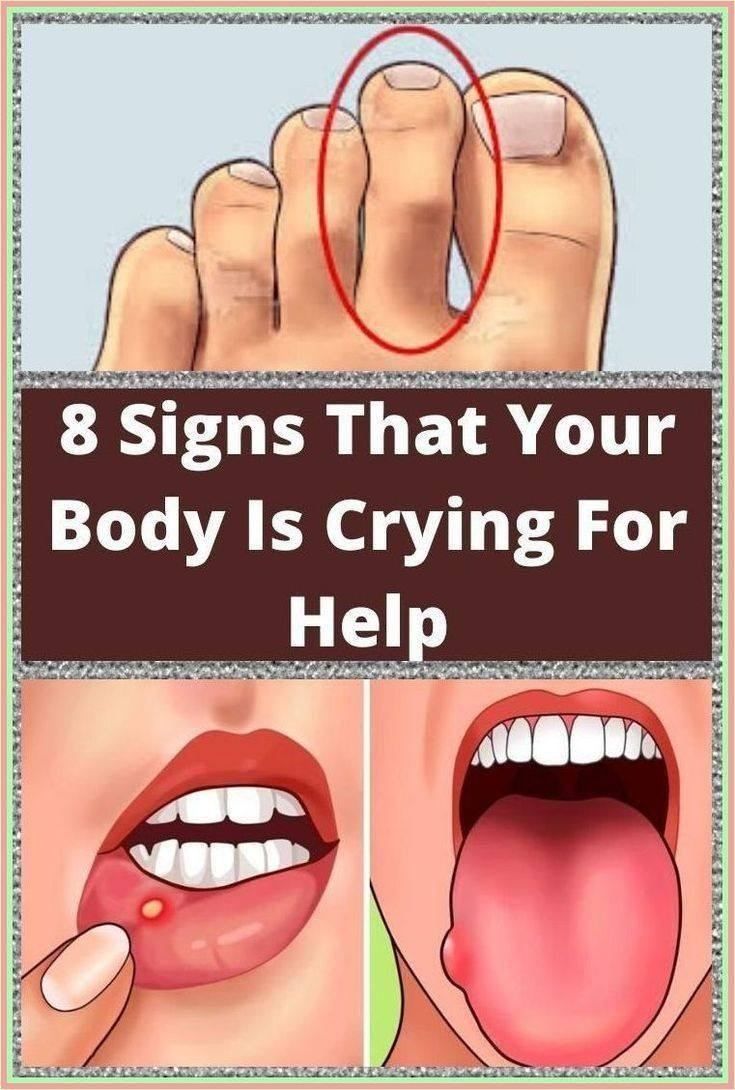ADVERTISEMENT
8 Signs That Your Body Is Crying Out For Help
Our bodies are incredibly complex, and sometimes they send subtle (or not-so-subtle) signals when something isn’t quite right. Ignoring these signs can lead to more serious health issues down the road. Understanding and responding to your body’s distress signals is crucial for maintaining overall health and well-being. Here are 8 signs that your body might be crying out for help and what they could mean:
1. Constant Fatigue or Exhaustion
Feeling tired all the time, even after a full night’s sleep, could be more than just a result of a busy schedule. Chronic fatigue may be a sign of underlying issues such as:
- Sleep disorders (like insomnia or sleep apnea)
- Nutrient deficiencies (iron, vitamin D, etc.)
- Chronic stress or anxiety
- Thyroid imbalances (hypothyroidism)
- Autoimmune conditions
If you’re consistently tired despite getting enough rest, it’s important to evaluate your diet, sleep habits, and stress levels. Consult a healthcare professional if the fatigue persists.
2. Persistent Digestive Issues
Upset stomach, bloating, constipation, diarrhea, or frequent heartburn could be your body’s way of signaling an issue with your digestive system. These problems may indicate:
- Food intolerances or allergies (such as lactose intolerance or gluten sensitivity)
- Irritable Bowel Syndrome (IBS)
- Stress-induced digestive problems
- Infections or gut imbalances (like bacterial overgrowth or parasites)
- Chronic conditions such as Crohn’s disease or celiac disease
If digestive discomfort becomes chronic or worsens, it’s a good idea to track your symptoms and speak with a healthcare provider to address the root cause.
3. Unexplained Weight Loss or Gain
Unexplained weight changes can be a red flag, especially if they occur without changes in diet or exercise. Potential causes of weight fluctuations include:
- Thyroid issues (hyperthyroidism or hypothyroidism)
- Diabetes or prediabetes
- Hormonal imbalances (such as menopause or PCOS)
- Stress and mental health issues (such as depression or anxiety)
- Certain medications or medical conditions (like cancer or gastrointestinal issues)
If you experience rapid or unexplained weight changes, it’s important to consult a doctor for further evaluation and testing.
4. Chronic Pain or Inflammation
Persistent pain, whether it’s in the joints, muscles, or other areas of the body, can indicate that something is wrong. Chronic pain might be related to:
- Inflammatory conditions like arthritis or fibromyalgia
- Autoimmune diseases (such as lupus or rheumatoid arthritis)
- Muscle strains or injuries that have not healed properly
- Nerve damage (e.g., sciatica, neuropathy)
- Poor posture or repetitive motion injuries
Pain should not be ignored, especially when it’s consistent or worsening. Seek medical attention to determine the cause and develop a treatment plan.
5. Skin Changes
Your skin can reveal a lot about your health. If you notice unusual skin changes such as:
- Rashes, itching, or hives
- Sudden acne breakouts or skin sensitivity
- Pale or yellowish skin (jaundice)
- Dry, flaky patches or excessive sweating
These could be signs of various health issues, including allergies, autoimmune diseases, hormonal imbalances, or liver problems. Persistent or unusual skin changes should be evaluated by a dermatologist or healthcare provider to rule out serious conditions.
6. Frequent Headaches or Migraines
Occasional headaches are common, but if you’re experiencing them frequently or with increasing intensity, it may be a sign of something more serious. Potential causes include:
- Tension or stress headaches
- Migraines or cluster headaches
- Dehydration or poor diet
- Vision problems or eye strain
- Neurological conditions, such as a brain tumor or stroke
If headaches are affecting your quality of life or becoming more severe, it’s essential to consult a healthcare provider to identify the underlying cause and explore treatment options.
For Complete Cooking STEPS Please Head On Over To Next Page Or Open button (>) and don’t forget to SHARE with your Facebook friends
